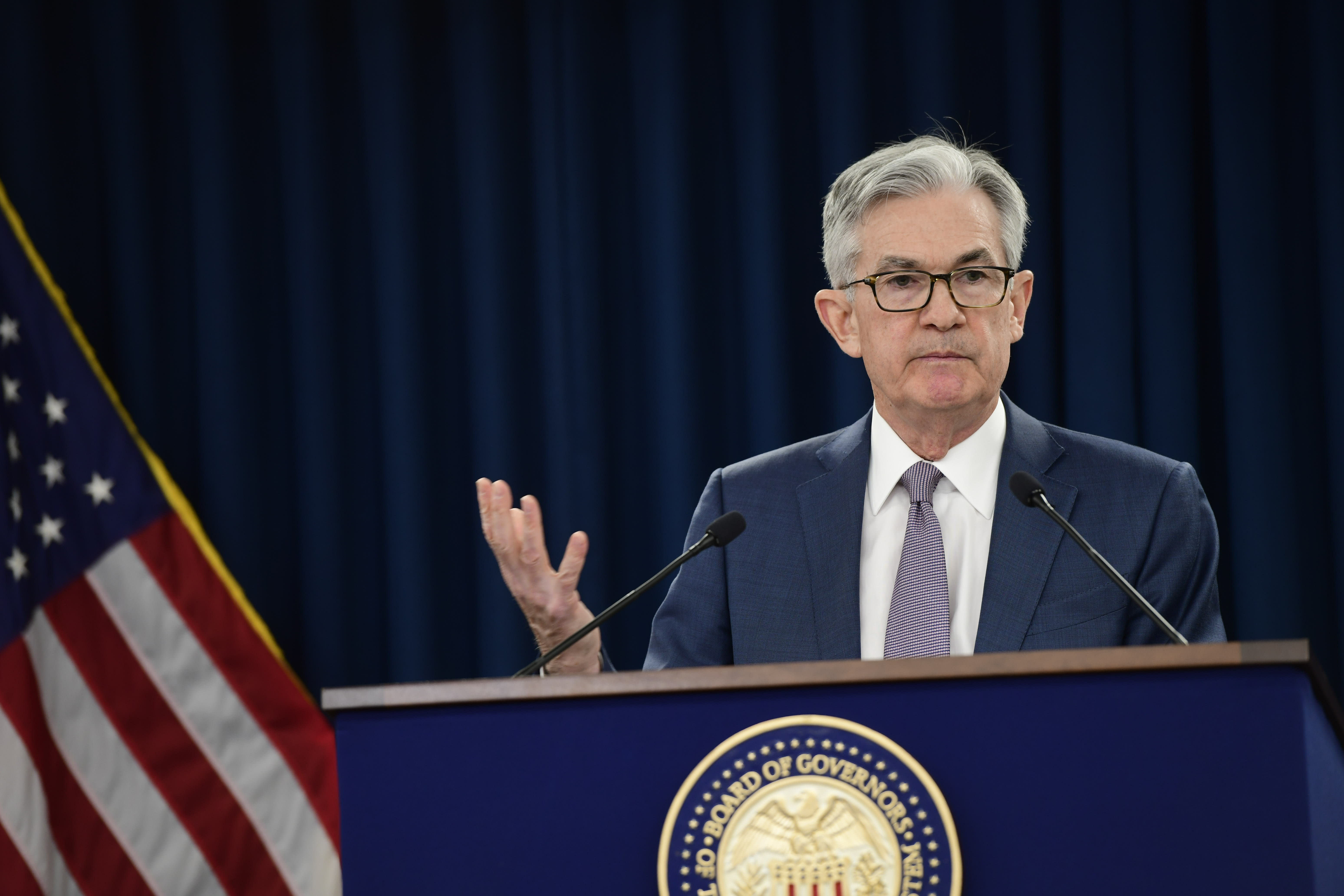
Getty Images
On Sunday, the Federal Reserve implemented an emergency cut in the federal funds rate to a range between 0% and 0.25% and launched quantitative easing with $700 billion of asset purchases. This was the second intermeeting rate cut in two weeks.
The Fed has not taken such drastic actions since the Great Financial Crisis. This policy move occurred in the wake of the more than 8,000-point drop in the Dow Jones Industrial Average over the last month. As coronavirus fears and its economic impact skyrocket, the stock market has been on a rollercoaster ride, losing almost 30% in three weeks and officially ending the 11-year bull market.
One could argue that, given the turbulent financial market, this action will boost confidence and prevent the possibility of a looming recession. However, the easing of monetary policy, as well as the proposed fiscal stimulus plans, have done little to slow down the cratering stock market. The crisis has virtually erased all of the gains in the S&P 500 since President Donald Trump took office. Many critics of the Fed had warned that the recent rate cuts over the past six months, when there was no imminent signs of recession, left the Fed without the ammunition to fight a real economic crisis. This has come true. But there is another risk of this move lurking beneath the headlines that has not received much attention: inflation.
Inflation and the Fed
Inflation was well contained up until the middle of last year, with consumer prices rising below 2% in January 2019 and giving the Fed room to pause hiking interest rates. However, CPI inflation has risen steadily over the past six months, from an annual rate of under 2% to nearly 2.5%. Similarly, core CPI, which removes the more volatile food and energy prices, bottomed out in mid-2019 and is now running consistently above the 2% Fed target rate. Over this same period, the Fed has cut the federal funds rate by 75 basis points, and this was before anyone had ever heard of the coronavirus.
The coronavirus crisis has created a perfect storm. In addition to the health consequences and human costs, it is leading to a severe economic crisis. On the one hand, by preventing people from going to work, causing them to be ill and disrupting supply chains, it is a huge shock to productivity. Similar to an oil price shock or a natural disaster, the limited supply of labor and production will create inflationary pressures. On the other hand, the need for social distancing has led to the cancellation of large events, ravaged the travel industry, and closed businesses, restaurants, and shopping centers, leading to a large negative demand shock.
The combination of both shocks will rapidly increase the unemployment rate and trigger a large economic recession. However, the decline of both demand and supply means that we should not expect to see the falling prices and deflation that occurred during the Great Recession and Great Depression.
For years after the Great Recession, the Fed has been trying to lift a low inflation rate closer to their long-run objective. The coronavirus crisis might just be the event that will give them too much of what they have been looking for.
In the short run the Federal Reserve's emergency lending programs will add the liquidity needed to keep credit markets functioning, and the proposed tax rebates will help individuals and businesses that are most adversely affected. While both of these policies will keep demand from collapsing, lowering interest rates in response to such a health-related event will not put infected individuals back to work. Ultimately, the solution to the economic crisis is a solution to the health crisis, and it must come from the response of public health officials and organizations.
The aftermath of a crisis
While the benefits of cutting a federal funds rate already close to zero is limited, there will be risks associated with the Fed's policy in the aftermath of the coronavirus crisis. In particular, when containment is achieved, production will still be restrained by those infected and unable to work and by those displaced by unemployment and struggling to find other jobs that may not fit their qualifications. However, there will be a surge in demand as fear abates, customers return to shopping centers and restaurants, and businesses and consumers look to borrow at historically low interest rates. Ultimately, the imbalance will create a lopsided recovery with slow output growth with accelerating prices and inflation; in other words, stagflation.
To avoid this dangerous scenario, the Fed would need to take quick action to reverse their recent rate cuts. But the political environment created by a president who calls for zero interest rates even when the economy is near full employment and a weary public emerging out of recession will make this unlikely.
The Federal Reserve is largely credited for ushering in the age of the Great Moderation, a Goldilocks scenario of low unemployment, low inflation and sustained economic growth that followed the tumultuous stagflation of the 1970s. The Fed was able to achieve this by establishing credible monetary policy rules that emphasized their mandate of price stability and low inflation.
While our economy continues to benefit from the legacy of these policies, keeping interest rates too low for too long threatens to undermine this delicate balance. For years after the Great Recession, the Fed has been trying to lift a low inflation rate closer to their long-run objective. The coronavirus crisis might just be the event that will give them too much of what they have been looking for.
— By Victor Li, professor of economics, Villanova School of Business
2020-03-19 13:15:10Z
https://www.cnbc.com/2020/03/19/what-comes-after-coronavirus-for-economy-worry-about-stagflation.html
CAIiEAnNSNvj6DhxHglSemO1oisqGQgEKhAIACoHCAow2Nb3CjDivdcCMN74ngY
Bagikan Berita Ini














0 Response to "What will come in the aftermath of coronavirus for economy? I'd worry about stagflation - CNBC"
Post a Comment